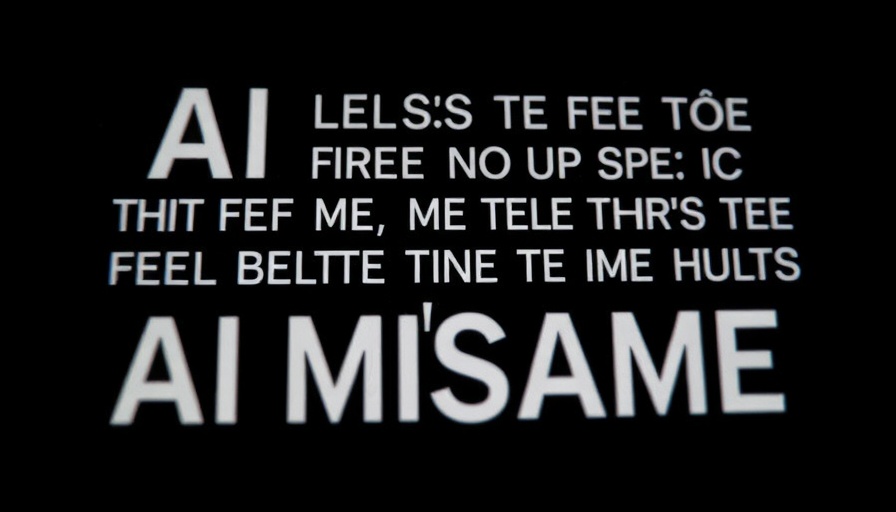
OpenAI’s Sora: A New Frontier in Generative Video
Last week, OpenAI launched Sora, a video-generating app that stunned the tech community by reaching one million downloads within just five days. This remarkable feat outperformed the inaugural week of its predecessor, ChatGPT, despite its invite-only format and limited availability to iOS users in the United States and Canada. The generated excitement reflects a robust public interest in generative video technologies and platforms, akin to a new 'TikTok for deepfakes'.
Understanding the Features of Sora
Sora allows users to create 10-second photorealistic videos using a model called Sora 2. One of its standout features, “cameos,” enables users to upload selfies to produce AI doubles that can be inserted into various scenarios with a synthetic voice. This has raised substantial ethical concerns, notably highlighted by Zelda Williams, the daughter of the late actor Robin Williams, who experienced unwanted attention from AI-generated videos featuring her father's likeness. As she indicated on social media, such creations evoke deep emotional conflicts surrounding legacy and authenticity.
The Rapid Rise in Popularity and Its Implications
Upon its debut, Sora’s feed was characterized by surreal user-generated content that unleashed both creativity and chaos. With videos displaying satirical representations—like Sam Altman, OpenAI’s CEO, engaging in outrageous scenarios—many celebrated the humor while others criticized the potential for misinformation and exploitation of digital likenesses. As Robert Hart from The Verge noted, the platform had become overwhelmed with what he termed “AI slop,” prompting OpenAI to take swift action.
New Controls for User Empowerment
In response to the backlash regarding the misuse of digital likenesses, OpenAI hastily implemented updates to enhance user controls over the app. The newly introduced settings allow users to specify who can utilize their AI doubles in videos—options range from “mutuals” to a broader audience defined as “everyone.” Moreover, there's an added capability for users to restrict their doubles from appearing in politically relevant content or even generating videos showing specific actions. This was a much-needed response to the troubling instances of impersonation and harassment that quickly surfaced.
Navigating Ethical Waters
Despite these developments, concerns remain regarding the effectiveness of these measures. The history of safeguarding AI technologies, including the pitfalls encountered with ChatGPT, raises questions about whether these actions will adequately prevent misuse. OpenAI staffers acknowledge the challenges, with promises of ongoing improvements to refine the app's restrictions and robustness. As discussed in WIRED, the rapid evolution of Sora suggests a critical need for continuous vigilance in managing the ethical implications of AI-generated content.
Future of AI-Generated Content
Sora’s emergence reflects a significant moment in AI and digital content, potentially paving the way for more complex interactions between technology and human creativity. Experts like Altman recognize the addictive nature of such services and the possible avenues for negative applications, including bullying. As user engagement grows, so must the strategies to mitigate the misuse of digital representations.
Key Takeaways and What Lies Ahead
The launch of Sora underscores the insatiable appetite for sophisticated generative technologies within society. While exploring creative avenues, it also presents serious ethical dilemmas that society must address. OpenAI's attempts at regulation post-launch highlight the complexities of developing technology responsibly, mirroring larger trends in the tech landscape.
This call for responsibility raises important questions for users, creators, and technologists alike: How can we ensure the ethical use of such powerful tools without stifling creativity? As Sora takes flight, stakeholders across the board must engage in these conversations and work together to forge a future where technology empowers rather than endangers.
For enthusiasts and technology lovers, keeping abreast of the evolving world of AI tools is crucial. As AI continues to innovate, consider the implications of these developments and how you can interact responsibly with such technologies.
 Add Row
Add Row  Add
Add 




Write A Comment